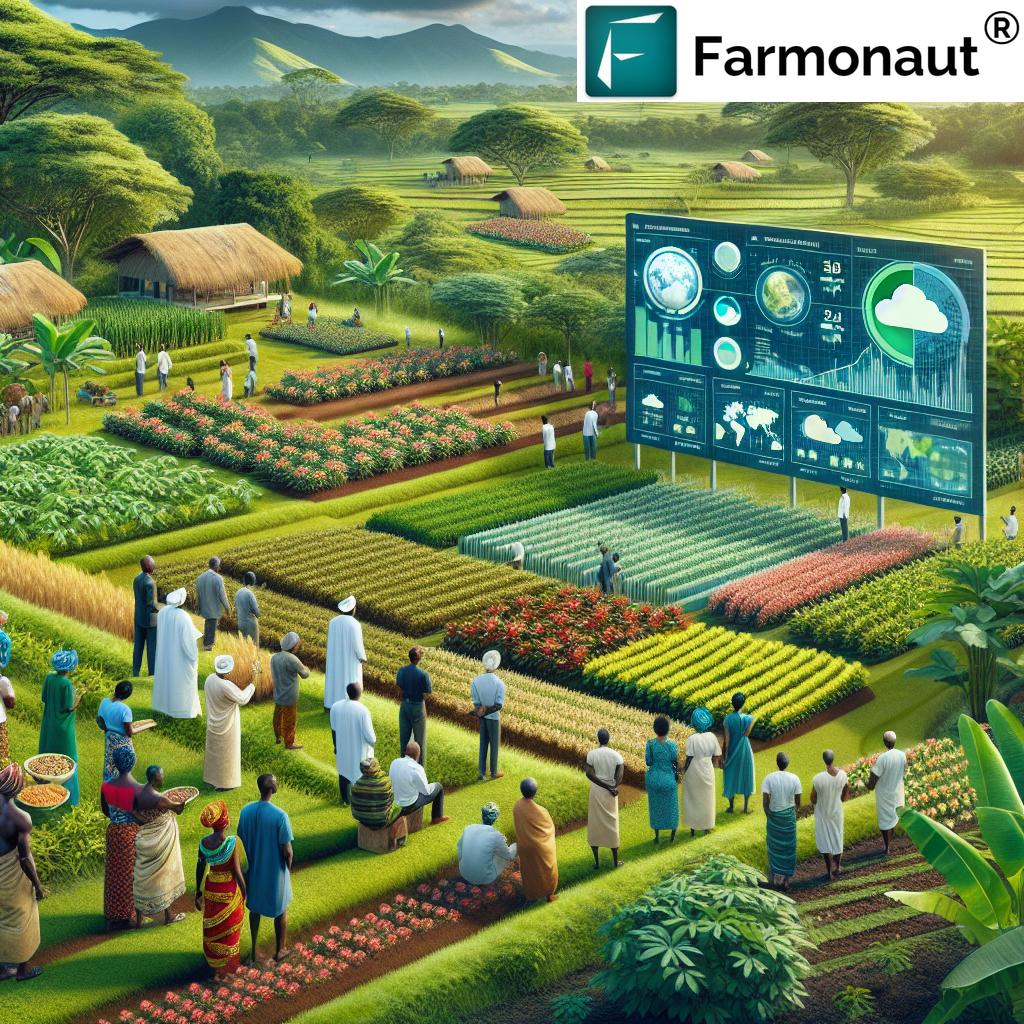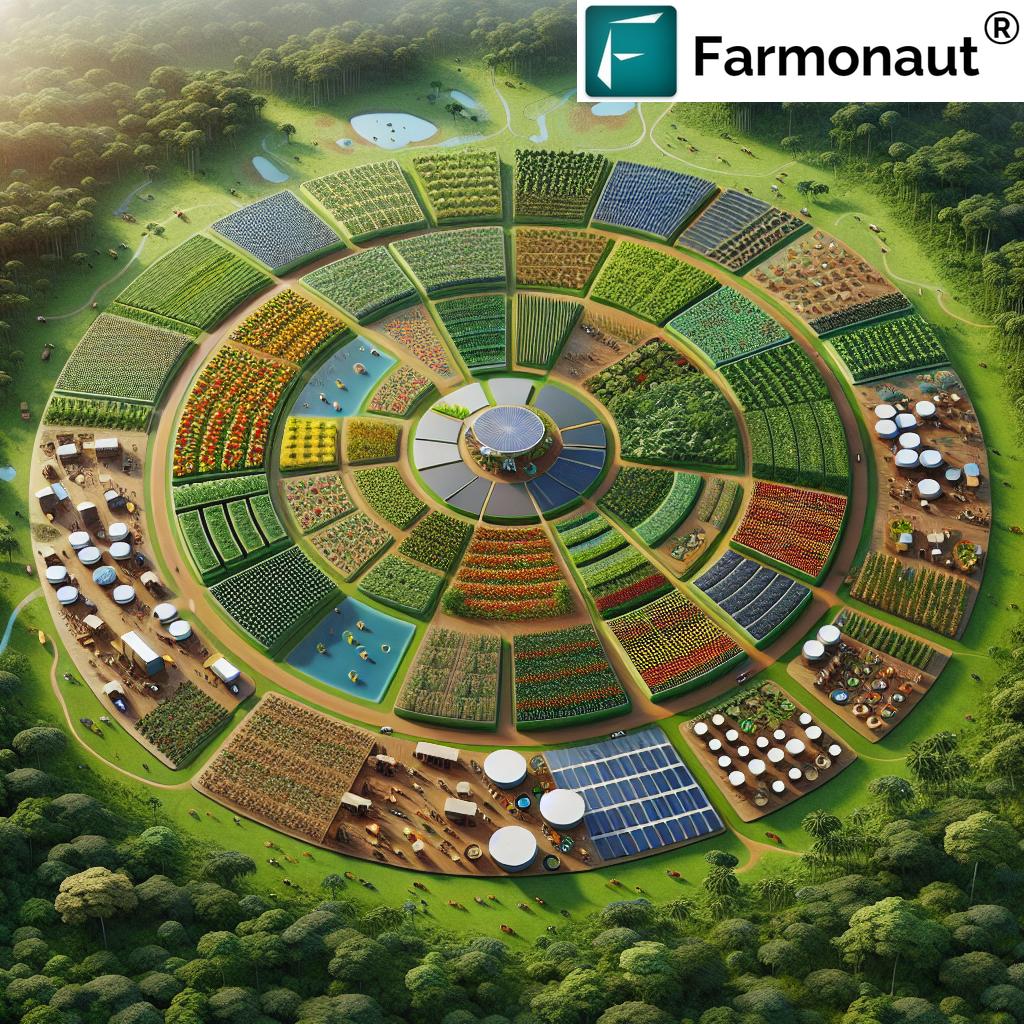Sustainable Agriculture in Liberia: Innovations for Food Security and Climate Resilience
“Liberia’s recent farmers’ conference addressed 7 key areas for fostering agricultural growth and sustainable development.”
In the heart of West Africa, Liberia is embarking on a transformative journey towards sustainable agriculture, aiming to bolster food security and enhance climate resilience. As we delve into the outcomes of the recent farmers’ conference in Margibi County, we’ll explore the innovative approaches and collaborative efforts shaping the future of Liberian agriculture. This comprehensive analysis will shed light on the challenges, opportunities, and groundbreaking solutions emerging in this vital sector.
The Pivotal Farmers’ Conference: Setting the Stage for Agricultural Advancement
The Ministry of Agriculture, in partnership with various development organizations, recently orchestrated a landmark farmers’ conference in Margibi County, Liberia. This gathering, held at the prestigious Booker Washington Institute in Kakata, brought together a diverse array of stakeholders, including farmers, processors, agro-input dealers, government officials, and international partners. The event, themed “Food Security, Nutrition, and Sustainable Development,” set the stage for critical discussions on enhancing agricultural productivity and sustainability in Liberia.
As we reflect on the conference’s outcomes, it’s clear that this event was more than just a meeting of minds; it was a catalyst for change in Liberian agriculture. The discussions revealed not only the challenges facing the sector but also the immense potential for growth and innovation.
Key Challenges in Liberian Agriculture
The conference highlighted several pressing issues that continue to hinder the progress of sustainable agriculture in Liberia:
- Gender Disparities: Unequal access to resources and opportunities between male and female farmers
- Climate Change Impacts: Increasing unpredictability in weather patterns affecting crop yields
- Outdated Research Methodologies: The need for modernized approaches to agricultural research
- Limited Access to Innovative Practices: A gap in the adoption of cutting-edge farming techniques
These challenges underscore the necessity for a comprehensive approach to agricultural development in Liberia. It’s here that innovative solutions, such as those offered by Farmonaut, can play a crucial role in addressing these issues head-on.

The Resolution: A Roadmap for Agricultural Growth
At the conclusion of the conference, participants collaboratively drafted a comprehensive resolution focusing on seven key areas to foster agricultural growth in Liberia. This resolution serves as a roadmap for sustainable agricultural development and addresses the critical challenges identified during the discussions.
| Key Area | Potential Impact |
|---|---|
| Enhanced farmer support systems | Improved access to resources and knowledge for increased productivity |
| Access to subsidized agricultural inputs | Reduced production costs and increased affordability for farmers |
| Promotion of agtech innovation | Increased efficiency and modernization of farming practices |
| Climate-resilient agriculture development | Enhanced adaptive capacity to climate change impacts |
| Value addition in agriculture | Increased profitability and market competitiveness for local produce |
| Strengthening policy implementation | Improved governance and effective execution of agricultural initiatives |
| Gender-inclusive farming initiatives | Equitable access to resources and opportunities for all farmers |
This resolution demonstrates a holistic approach to addressing the multifaceted challenges in Liberian agriculture. By focusing on these key areas, stakeholders aim to create a more robust, inclusive, and sustainable agricultural sector.
Innovative Solutions for Sustainable Agriculture
As we explore the resolution’s key areas, it’s crucial to highlight how innovative technologies and practices can contribute to achieving these goals. Farmonaut, a pioneering agricultural technology company, offers solutions that align perfectly with Liberia’s agricultural development objectives.
Climate-Smart Farming Technologies
One of the central focuses of the conference was the adoption of climate-smart farming technologies. These innovative approaches are designed to increase agricultural productivity while adapting to and mitigating the effects of climate change.
Farmonaut’s satellite-based crop health monitoring system is an excellent example of such technology. By providing real-time data on crop health, soil moisture levels, and other critical metrics, this system enables farmers to make informed decisions about irrigation, fertilizer usage, and pest management. This not only optimizes crop yields but also promotes more efficient use of resources, contributing to both productivity and sustainability goals.
Agricultural Financing for Small Farmers
Access to financing remains a significant challenge for many Liberian farmers, particularly those operating on a small scale. The conference resolution emphasized the need for improved agricultural financing mechanisms to support these farmers.
Farmonaut’s partnerships with financial institutions offer a innovative solution to this challenge. By providing satellite-based verification for crop loans and insurance, Farmonaut helps reduce the risk of fraud and improves access to financing for farmers. This aligns perfectly with the conference’s recommendation to establish a National Agricultural Fund and facilitate credit access for small and medium-sized farmers.
Enhancing Farmer Support Systems
The resolution highlighted the importance of strengthening farmer support systems, including timely access to subsidized agricultural inputs and promoting capacity-building initiatives. Farmonaut’s Jeevn AI Advisory System addresses this need by delivering real-time insights, weather forecasts, and expert crop management strategies directly to farmers.
This AI-driven tool analyzes satellite data and other inputs to generate customized advice, effectively enhancing farm productivity and efficiency. By providing this valuable information, Farmonaut contributes to the knowledge-sharing objectives outlined in the conference resolution.

Promoting Value Addition in Agriculture
Value addition in agriculture was another key focus area identified during the conference. By enhancing the value of local products and improving market access, Liberian farmers can increase their profitability and competitiveness.
Farmonaut’s blockchain-based traceability solution offers a unique approach to value addition. By enabling transparent tracking of agricultural products from farm to consumer, this technology enhances trust and reduces fraud in supply chains. This not only adds value to Liberian agricultural products but also opens up new market opportunities, particularly in export markets where traceability is increasingly important.
Empowering Liberian Farmers with Farmonaut’s Solutions
As we continue to explore the innovative solutions that can drive sustainable agriculture in Liberia, it’s important to highlight how Farmonaut’s comprehensive suite of tools can empower Liberian farmers and support the goals outlined in the conference resolution.
Precision Agriculture for All
One of Farmonaut’s key strengths is its ability to democratize access to precision agriculture. Unlike traditional precision farming tools that often require expensive hardware, Farmonaut’s satellite-based solutions make advanced agricultural technologies accessible to farmers of all scales. This aligns perfectly with Liberia’s goal of enhancing farmer support systems and promoting inclusive agricultural growth.
By leveraging Farmonaut’s platform, Liberian farmers can:
- Monitor crop health in real-time
- Optimize resource usage, including water and fertilizers
- Make data-driven decisions to improve yields and reduce losses
- Adapt to changing weather patterns and climate conditions
These capabilities directly address many of the challenges identified during the farmers’ conference, particularly those related to climate resilience and agricultural productivity.
Enhancing Rural Agricultural Development
Rural agricultural development was a key focus of the conference discussions, with emphasis placed on improving infrastructure and market access for rural farmers. Farmonaut’s solutions can play a significant role in this area by:
- Providing remote monitoring capabilities, reducing the need for frequent physical inspections
- Offering fleet and resource management tools to optimize logistics in rural areas
- Enabling better planning and resource allocation based on accurate, up-to-date data
These features can help bridge the gap between rural and urban agricultural practices, supporting more equitable development across Liberia’s agricultural sector.
Supporting Gender-Inclusive Farming Initiatives
The conference resolution emphasized the importance of creating initiatives for youth, gender inclusivity, and supporting people with disabilities in agriculture. Farmonaut’s user-friendly platform and mobile applications make its technologies accessible to a wide range of users, regardless of their technical expertise or physical capabilities.
By providing equal access to advanced agricultural technologies and insights, Farmonaut can help level the playing field for all farmers in Liberia, supporting the goal of gender-inclusive and youth-focused agricultural development.
“Climate-smart farming technologies were a central focus at Liberia’s conference on food security and sustainable agriculture.”
Implementing Farmonaut’s Solutions in Liberia
As we consider the potential impact of Farmonaut’s technologies on Liberian agriculture, it’s important to outline how these solutions can be implemented effectively. Here are some key steps for integrating Farmonaut’s tools into Liberia’s agricultural landscape:
- Awareness and Education: Conduct workshops and training sessions to familiarize Liberian farmers with Farmonaut’s platform and its benefits.
- Pilot Programs: Implement pilot projects in key agricultural regions to demonstrate the effectiveness of satellite-based monitoring and AI-driven advisory services.
- Partnerships with Local Organizations: Collaborate with Liberian agricultural cooperatives and farmer associations to facilitate wider adoption of Farmonaut’s technologies.
- Integration with Government Initiatives: Work with the Ministry of Agriculture to incorporate Farmonaut’s solutions into existing agricultural development programs.
- Customization for Local Conditions: Adapt Farmonaut’s AI algorithms to account for Liberia’s specific crop varieties, climate conditions, and farming practices.
By following these steps, we can ensure that Farmonaut’s innovative solutions are effectively leveraged to support sustainable agriculture in Liberia.
The Role of Policy in Advancing Sustainable Agriculture
While technological solutions like those offered by Farmonaut play a crucial role in advancing sustainable agriculture, supportive policies are equally important. The conference resolution emphasized the need for strengthening governance and policy frameworks to create an enabling environment for agricultural growth.
Key policy recommendations include:
- Increased government investment in agricultural research and development
- Implementation of fair market access policies to support local farmers
- Development of robust monitoring systems for accountability in agricultural practices
- Creation of incentives for the adoption of climate-smart technologies
These policy measures, combined with innovative technologies, can create a powerful synergy to drive sustainable agricultural development in Liberia.
The Path Forward: Collaboration for Sustainable Growth
As we conclude our exploration of sustainable agriculture in Liberia, it’s clear that the path forward requires collaboration among all stakeholders. The farmers’ conference in Margibi County has set the stage for a new era of agricultural development, one that embraces innovation, sustainability, and inclusivity.
By leveraging cutting-edge solutions like those offered by Farmonaut, implementing supportive policies, and fostering partnerships between farmers, government agencies, and international organizations, Liberia can transform its agricultural sector into a powerful engine for sustainable growth and food security.
The journey towards sustainable agriculture in Liberia is just beginning, but with the right tools, policies, and collaborative spirit, the future looks promising. As we move forward, let’s continue to innovate, adapt, and work together to create a resilient and prosperous agricultural sector that benefits all Liberians.
FAQ Section
Q: What were the main outcomes of the recent farmers’ conference in Liberia?
A: The conference resulted in a comprehensive resolution targeting seven key areas for fostering agricultural growth, including enhanced farmer support systems, improved access to subsidized inputs, and promotion of agtech innovation.
Q: How can climate-smart farming technologies benefit Liberian agriculture?
A: Climate-smart technologies, such as Farmonaut’s satellite-based monitoring system, can help farmers adapt to changing weather patterns, optimize resource use, and improve crop yields while reducing environmental impact.
Q: What role does gender inclusivity play in Liberia’s agricultural development plans?
A: Gender-inclusive farming initiatives are a key focus, aiming to ensure equitable access to resources and opportunities for all farmers, regardless of gender.
Q: How can Farmonaut’s solutions support small-scale farmers in Liberia?
A: Farmonaut offers affordable precision agriculture tools, AI-driven advisory services, and partnerships with financial institutions to improve access to financing for small-scale farmers.
Q: What policy changes are needed to support sustainable agriculture in Liberia?
A: Key policy recommendations include increased investment in agricultural research, fair market access policies, and incentives for adopting climate-smart technologies.
Explore Farmonaut’s innovative solutions:

Android App

iOS App




